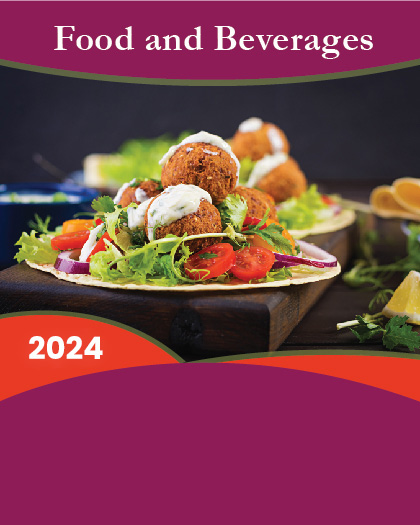
The global Immune Health Supplements market size in 2022 is 3262.8 million US dollars, and it is expected to be 7441.4 million US dollars by 2029, with a compound annual growth rate of 12.50% expected in 2023-2029.
MARKET COMPETITIVE LANDSCAPE:
The main players in the Immune Health Supplements market include Bayer AG (Germany), Pfizer Inc. (U.S.), Sun Pharmaceutical Industries Limited (India), Swisse Wellness Pty Ltd. (Australia), and GSK PLC (U.K.). The share of the top 3 players in the Immune Health Supplements market is XX%.
REGION SHARE:
The report covers the market size information of North America, Europe, Asia Pacific, Latin America, Middle East and Africa, and North America accounted for XX%, Europe accounted for XX% of Immune Health Supplements market, and Asia Pacific accounted for XX%.
SEGMENT OVERVIEW:
The report segments the market by Type and Application. Plant based accounted for XX% of Immune Health Supplements market in 2022. Animal based share of XX%.
Supermarkets and Hypermarkets accounted for XX% of the Immune Health Supplements market in 2022. Drug Stores accounts for XX%.
The cumulative impact of COVID-19, Russia-Ukraine conflict, and high inflation is expected to have a significant long-term impact on the global Immune Health Supplements markets. Ongoing research considers changes in consumer behavior, supply chain disruptions, and government intervention caused by the pandemic. Likewise, the report considers the ongoing political and economic uncertainty in Eastern Europe caused by the Russia-Ukraine conflict and its potential impact on the supply-demand balance, pressure on pricing variables, and import, export, and trade. In addition, the report discusses the impact of high inflation on the global economy and details fiscal policies to measure and reduce its impact on demand, supply, cash flows, and currency exchange.
Market Statistics:
Reports provide market sizes and forecasts for multiple major currencies (USD, EUR, JPY, GBP, CNY, etc.); multi-currency support helps organizational leaders make informed decisions. This report takes 2018-2021 as the historical year, 2022 as the base year, 2023 as the semi-forecast year, and 2024-2029 as the full forecast year.
Market Share Analysis:
Market share analysis provides deep insights into the current status of vendors in a particular market space. By comparing suppliers' contributions to total revenue, customer base, and other key metrics, we can give companies a better understanding of their performance and the challenges they face as they compete for market share. The analysis also sheds light on the competitiveness of any given sector in terms of accumulation, diversification of strengths, and consolidation characteristics during the base year studied.
The report provides insights on the following metrics:
Market Penetration: Provides comprehensive information on the market offered by key players
Market Diversification: Provides detailed information on new product launches, greenfield regions, recent developments and investments
Market Trends: A Big Picture of the Cumulative Impact of COVID-19, Russia-Ukraine Conflict, and High Inflation
Competitive assessment and intelligence: Provides an exhaustive assessment of market shares, strategies, products, certifications, regulatory approvals, patent landscape and manufacturing capabilities of leading players
Product Development & Innovation: Provides intelligent insights into future technologies, R&D activities, and breakthrough product developments
Market Segmentation: Segment by Type, Application, and Region to provide detailed insights into market information.
Chapter Outline
Chapter 1: Introduces the product overview, market scope, product classification, application, and regional division, and then includes inflation analysis, the impact of the Russo-Ukrainian war on the market, and the global impact of the coronavirus disease (COVID-19).
Chapter 2: Analysis of the competitive environment of Immune Health Supplements market participants. This mainly includes the revenue and market share of the top players, along with the players' M&A and expansion in recent years.
Chapter 3: Analyzes the main companies in the Immune Health Supplements industry, including their main businesses, products/services, revenue, gross and gross margin.
Chapters 4-6: Segmented the global Immune Health Supplements market by type, application and region. Analyze the revenue of market segments from different perspectives.
Chapters 7-15: Provide North America, Europe, China, Japan, Korea, Southeast Asia, India, South America and Middle East & Africa Immune Health Supplements market type, application, PEST analysis and players market segmentation data.
Chapter 16: Analyzes the Immune Health Supplements business cost, including industrial chain and the proportion of business cost structure.
Chapter 17: Introduces the market dynamics, the trends factors and drivers factors of the market, and the challenges and restraints faced by manufacturers in the industry.
Chapter 18: The main points and conclusions of the report.
Highlights-Regions
North America
Europe
China
Japan
Korea
Southeast Asia
India
South America
Middle East & Africa
Player list
Bayer AG (Germany)
Pfizer Inc. (U.S.)
Sun Pharmaceutical Industries Limited (India)
Swisse Wellness Pty Ltd. (Australia)
GSK PLC (U.K.)
Abbott (U.S.)
Amway Corp. (U.S.)
Nature's Bounty (U.S.)
Herbalife International Inc. (U.S.)
Himalaya Food International Ltd. (India)
American Health (U.S.)
Unilever (U.K.)
Sanofi (France)
Novartis AG (Switzerland)
Boehringer Ingelheim International GmbH (Germany)
Nestle S.A. (Switzerland)
Danone SA (France)
Types list
Plant based
Animal based
Application list
Supermarkets and Hypermarkets
Drug Stores
Specialty Stores
Online and Others
























